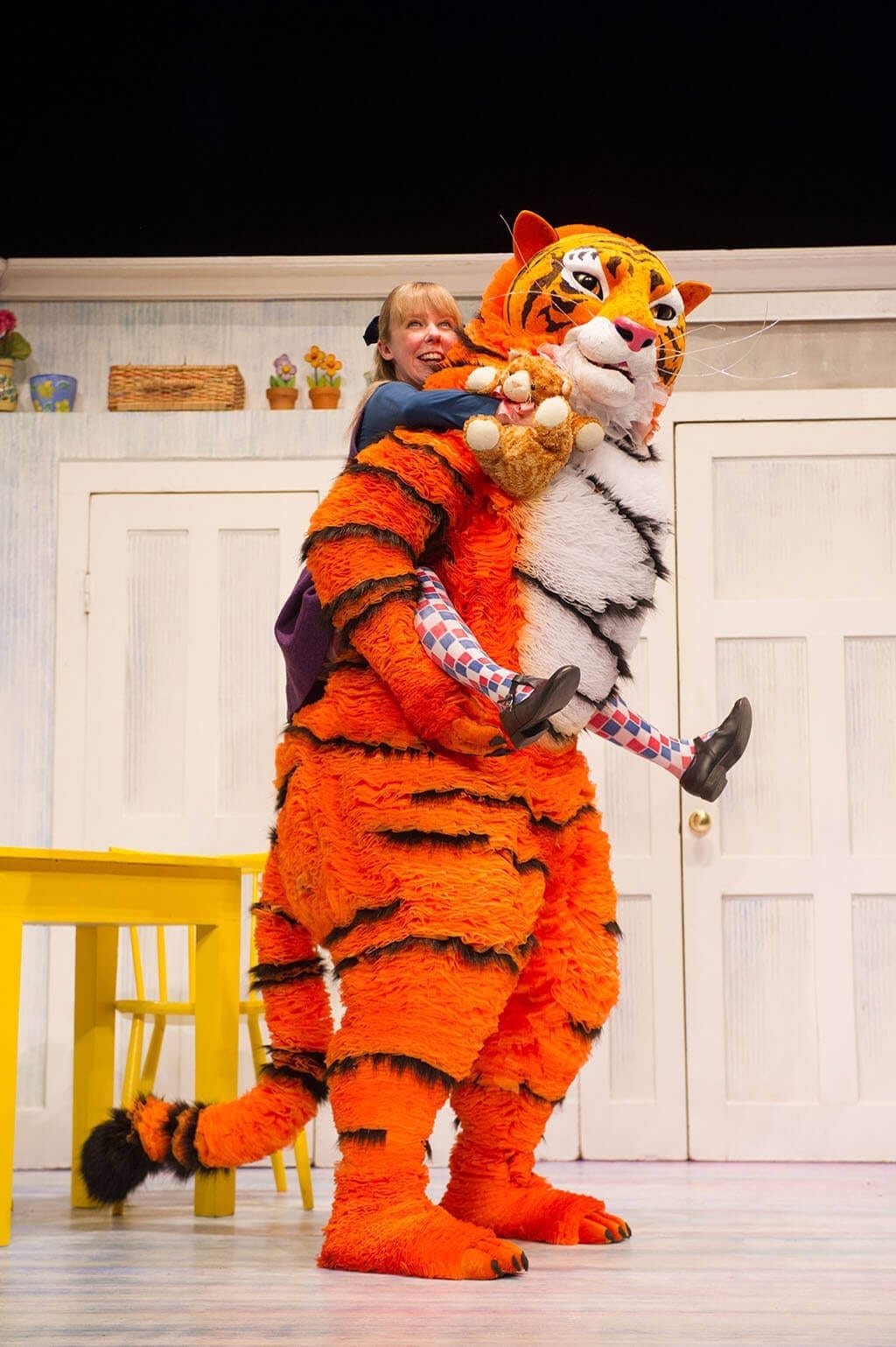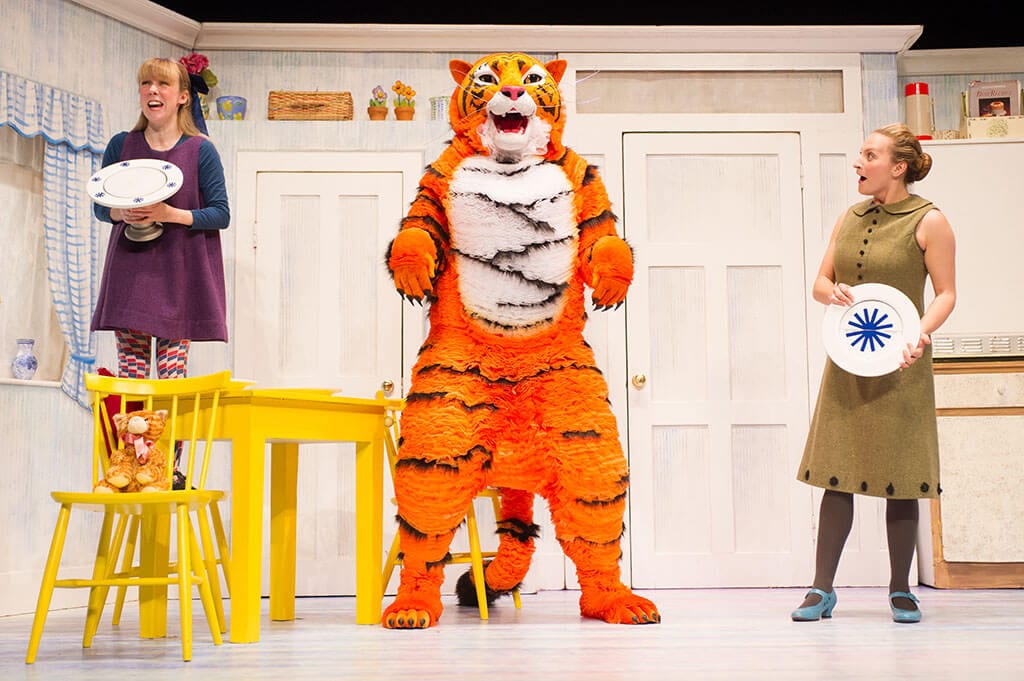Used as one now is to the adult jokes embedded in kids’ movies, a tic that has always, it seems, been prevalent in panto, it is strange to come across a show that is single-mindedly created and designed for children. The return to innocence takes some getting used to, but is worth the effort of trying.
Based on Judith Kerr’s immensely popular 1968 book, The tiger who came to tea, the show of the same name currently playing at The Lyric Theatre has its audience of kids singing along, dancing, and shouting out answers. These children will no doubt be, when they grow up, the people who mumble along with an actor as he runs through Hamlet’s soliloquies. At the moment, their repertoire is along the lines of: ‘sausages!’; ‘chips!’; ‘ice-cream!’
David Wood, who has written the book, the music, the lyrics, and directed the play as well, is one of Britain’s best loved children’s playwrights. And this is clearly the work of a master craftsman. The play is structured along panto lines, with constant repetitions, allowing the children to join in, lots of calls out for answers and panto/ Punch and Judy style hide and seek games. ‘There’s no tiger,’ say Sophie and her Mummy. ‘There!’ shout the children. The costumes are superb, matching the book’s drawings to a tee; the set is great, and when a bath was unfolded, as if it belonged to a pop-up book, a five year old girl behind us said, ‘Oh, that’s clever.’ Cynic.
The play’s Annie Hall style of acting and singing is perhaps a little too arch for my taste; yes, I am aware it is the nature of the beast and that I am not the target audience. While Abbey Norman who plays Sophie has a truly beautiful and powerful voice, I think, overall, the actors didn’t seem to be enjoying themselves. Some scenes were quite magical though: the tiger opening a cupboard, the fridge, and swallowing up all the food; the car scene where the actors used chairs to build a jutting second-hand sounding car.
At the end of the book, Sophie and her Mummy go out and buy tiger food in the hope that the tiger will come back one day. But ‘he never did.’ In the play, he does and I think this is a cop-out. It takes courage to leave children with an un-happy ending.
Some of my attention was given to the play but the most part was given watching my little boy watching the play. He was bedazzled. And when it was all over and the actors had taken their bows, he sat there transfixed and whispered to me, ‘Again.’ What else can I say? A winner-on all fronts.



